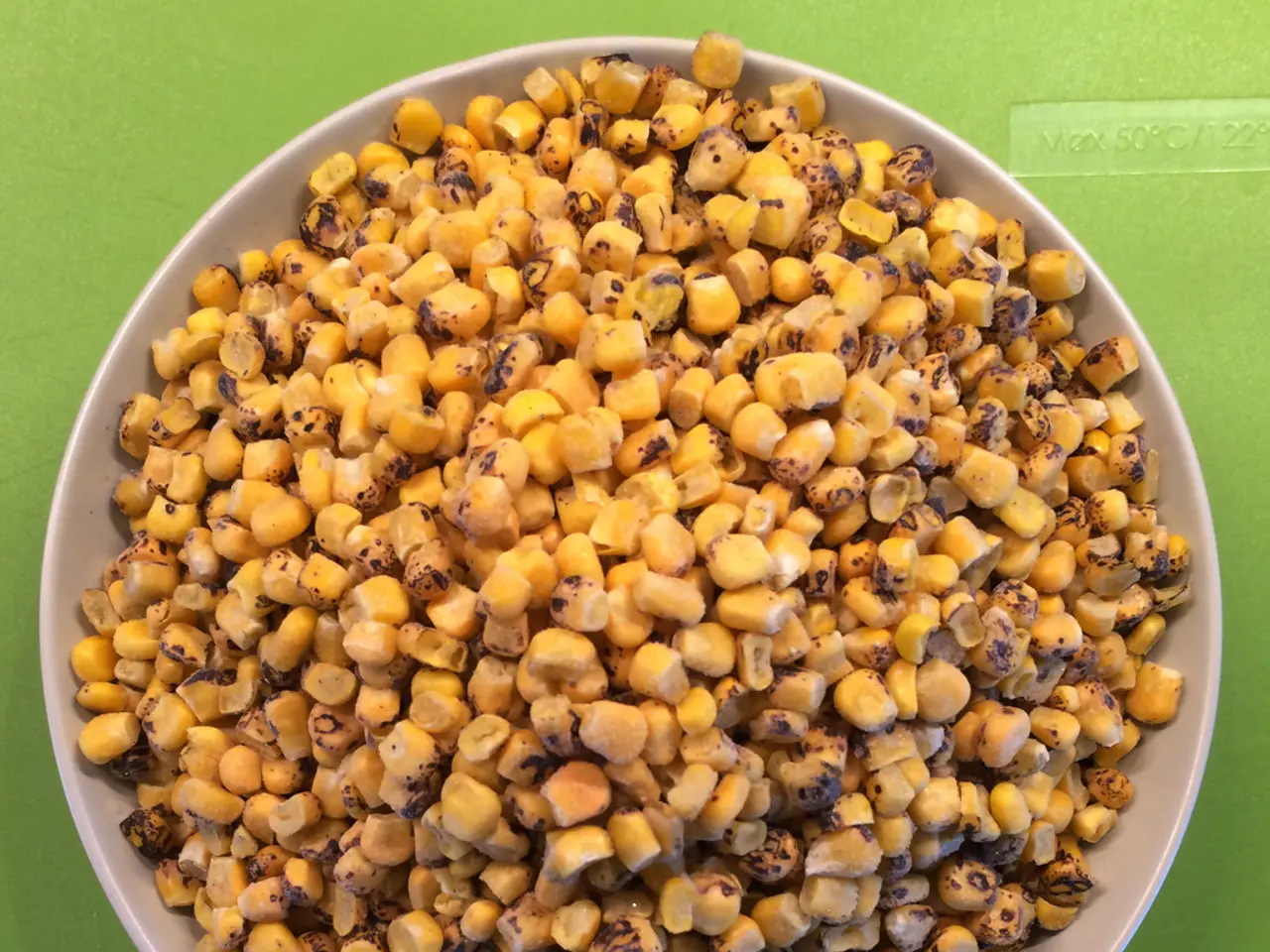Boosting growth of colon cancer tumors with a comparable sweetener to 'miracle grow'
Researchers at Baylor College of Medicine and Weill Cornell Medicine have made a startling discovery that could change the way we view the link between sugary drinks and colorectal cancer. A recent study suggests that consuming sugary beverages, such as sodas and juice, could potentially cause cancer to grow faster, leading to deadly tumors at a younger age.
The study, published in the journal Science, involved giving mice either regular water or water sweetened with high-fructose corn syrup (HFCS), at an amount equivalent to a person drinking one 12-ounce can of soda per day. After just two months, the mice on the sugary drink regimen developed tumors that were both larger and more deadly than those in mice drinking regular water.
The tumors in mice consuming HFCS were found to absorb both fructose and glucose from the sweetener to feed themselves. This is thought to occur through metabolic alterations and increased availability of fructose to cancer cells, which can metabolize fructose to support rapid proliferation.
The study does not confirm that HFCS causes colorectal cancer in humans, but it suggests a potential link that warrants further investigation. In humans, observational data link consumption of sugary drinks (often containing HFCS) with increased risk of colorectal cancer and other cancers. Higher intake of sugary beverages was positively associated with overall cancer risk, including colorectal cancers, in large epidemiological studies.
The researchers created a mouse model of early-stage colon cancer by deleting the gene for a protein known as APC. This protein works like a gatekeeper in colorectal cancer, and its deletion is compared to removing the brakes of a car, causing normal intestinal cells to grow uncontrollably and form early-stage tumors called polyps.
Dr. Jihye Yun, assistant professor of molecular and human genetics at Baylor, stated that even modest amounts of high-fructose corn syrup in liquid form can boost tumor growth and progression in mice with early-stage intestinal tumors, independently of obesity. This effect is linked to HFCS’s role in promoting mechanisms that stimulate cancer cell proliferation.
The medical community previously believed that the link between sugary drinks and colorectal cancer was due to obesity caused by excessive sugar consumption. However, this study shows a direct molecular mechanism for the correlation between consumption of sugar and colorectal cancer. Lewis Cantley, professor of cancer biology at Weill Cornell Medicine, mentioned that this study provides a molecular explanation for the association between sugar and colorectal cancer.
The study suggests that chronic consumption of sugary drinks could potentially shorten the time it takes for colorectal cancer to develop. While further research is needed to translate the discovery to people, Dr. Yun suggested that avoiding sugary drinks could be a simple and effective way to reduce the risk of colorectal cancer.
In summary, the study provides evidence that HFCS promotes colorectal cancer growth in mice by stimulating tumor proliferation through metabolic and signaling pathways, and in humans, HFCS-containing sugary drink consumption is associated with higher colorectal cancer risk, likely through similar biological mechanisms involving insulin signaling, inflammation, and cellular proliferation.
- The study's findings in mice suggest a potential link between high-fructose corn syrup (HFCS) consumption and colorectal cancer, which could have significant implications for health-and-wellness and fitness-and-exercise routines that include the consumption of sugary beverages.
- Furthermore, observational data in humans indicate an increased risk of colorectal cancer and other medical-conditions associated with higher intake of sugary drinks, often containing HFCS, highlighting the need for Consideration of nutrition in our diets to maintain overall health and prevent certain cancers.
- The discovery could prompt further investigations into the mechanisms of sugar's role in cancer growth, potentially leading to new treatments and preventive measures for various types of cancer, such as colorectal, in the field of science and medical-conditions research.




